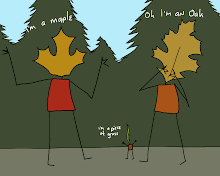Maybe try to contact Todd Patrick and talk to him about the venues that he gets bands to play at, galleries, warehouses, etc. and how he feels that affects the scene.
Venues in Brooklyn that would be worthwhile to look into: Williamsburg Music Hall, Studio B, The Bell House, Terminal 5, The Knitting Factory and its recent move to Brooklyn, festivals at McCarren Park that showcase indie bands.
Some info on bands myspace's: (Checked everything on Monday, February 23 at about 9:45 p.m.) - MGMT - 48,262,067 plays, 13,997,334 profile views, 195,182 friends; Yeasayer - 1,199,805 plays, 1,891,991 profile views, 19,042 friends. Does the fact that MGMT is on a major record label, Columbia being that label, make that big of a difference in getting their name out there? That would appear to be the case when investigating these two bands myspace's. I saw MGMT last year at Bonnaroo and now this year, they are back again, but Yeasayer is also on the bill this year. Maybe Yeasayer is just getting larger national and international exposure now. I've been into them for a while, but maybe others have not.
Release dates of albums: MGMT, Oracular Spectacular - US release date, October 2, 2007; Amazon.co.uk says that the UK release date was January 22, 2008; Yeasayer, All Hour Cymbals - Original US release date, October 23, 2007; UK release date, March 24, 2008. Very close release dates of both albums in the US and in the UK. Is MGMT selling out because they signed with a major label, even though they had offers from many indie labels? I personally don't mind when bands sign to major labels...when they were on indie labels first. I'm not sure how I feel about going straight to a major label. I feel like for instance, when Death Cab went to Atlantic from Barsuk, it was a great move because they were finally getting recognition for all the hard work and great music they had made (even though I don't like the releases on Atlantic as much as I do the ones on Barsuk). I really like MGMT's music, but to go straight to a major label may be viewed as selling out by some people. I could feel either way about it; I'm not too sure yet. It is good because it's like, great, I like your music, and I've been following you for a while, great that you hit it big from the beginning. I guess the real testament to how I feel about it will be when they put out their next album and then we can all see how much a major record label has influenced their music.
I think I not only want at look at Brooklyn as a place that all of these great bands and artists have decided to settle and come out of, but also compare Yeasayer and maybe another band, one that I still haven't decided upon, to MGMT because of the fact that MGMT can't really be considered part of the indie scene anymore I guess because they are on Columbia records, even though they got their origins as a rising indie band in Brooklyn. I'm also hoping to get in contact with the bands, somehow, I'm still not sure how, but if that could be possible, it would be the most ideal situation. I also plan on talking to people who are into these bands and who are from Brooklyn to see what their thoughts on the whole scene are/if they've been to shows in the area and which ones they were, etc. I feel that I want to do some sort of comparison between the mainstream and indie bands in Brooklyn and if I could talk to the bands personally and try to get their feelings on the issue, that would be the best possible scenario. I'll have to see where it goes though.
